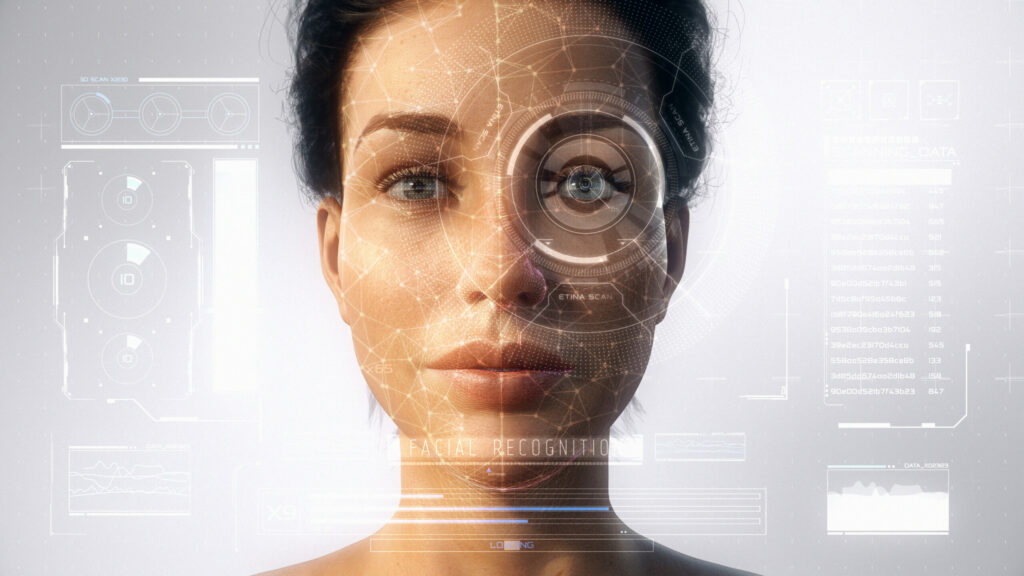
We live in an era brimming with gadgets, algorithms, and vast amounts of data—a digital world more complex than ever before, where technology steadily weaves its way into our personal and professional lives. In this context, “digital literacy” isn’t just a trendy catchphrase; it’s about having the essential skills that let you make the most of digital technologies like internet platforms, social media, and mobile devices for a whole array of purposes. These skills are crucial not just for individuals but also for organizations looking to grasp how the merging of AI and cyber security might affect their daily business operations.
As artificial intelligence redefines the boundaries of what’s possible online, it simultaneously reshapes the cyber threats we face. But what does this mean for businesses?
Let’s examine why your business clients must embrace digital literacy, ensuring their teams are well-equipped and informed about AI and its potential impact on cyber security.
The Rise of AI in Cyber Security
 The journey of AI in cyber security traces its roots back to the late 20th century when rudimentary algorithms were first employed to detect malicious patterns. Since then, the integration of AI has been nothing short of transformative. Today, AI-driven security tools, from predictive threat intelligence to automated incident response systems, stand at the forefront of defense strategies, revolutionizing how we protect digital assets.
The journey of AI in cyber security traces its roots back to the late 20th century when rudimentary algorithms were first employed to detect malicious patterns. Since then, the integration of AI has been nothing short of transformative. Today, AI-driven security tools, from predictive threat intelligence to automated incident response systems, stand at the forefront of defense strategies, revolutionizing how we protect digital assets.
However, with advancement comes adversity. Sophisticated AI-driven cyber threats are emerging, leveraging the same technological prowess for nefarious purposes. A recent survey among top cyber security experts revealed that 75% saw an increase in attacks over the past year, and 85% attributed this surge to malicious entities exploiting generative AI. This underscores the double-edged nature of AI on cyber security. As we celebrate the strides made, we must also brace for the heightened challenges AI introduces to the cyber security landscape.
AI Threats That Demand Digital Literacy
Cyber security is undergoing a seismic shift, and one key question echoes in the corridors of digital strategy meetings: How will AI affect cyber security? As technology races ahead, artificial intelligence not only strengthens defenses but also introduces sophisticated threats, such as:
 AI-Generated Phishing and Deepfakes: Gone are the days of easily identifiable phishing emails. AI can now craft hyper-personalized phishing campaigns, targeting unsuspecting users with alarming precision. Meanwhile, deepfakes—ultrarealistic AI-generated audiovisual content—can deceive individuals into believing they’re interacting with genuine entities, making verification processes critical.
AI-Generated Phishing and Deepfakes: Gone are the days of easily identifiable phishing emails. AI can now craft hyper-personalized phishing campaigns, targeting unsuspecting users with alarming precision. Meanwhile, deepfakes—ultrarealistic AI-generated audiovisual content—can deceive individuals into believing they’re interacting with genuine entities, making verification processes critical.- Automated Hacking Tools Powered by AI: Traditional hacking requires human intervention and expertise. However, AI-powered tools have automated hacking, constantly evolving and adapting to bypass security protocols. Their rapid-fire, self-learning capabilities mean they can spot and exploit vulnerabilities faster.
- Subtle AI Attacks: The most menacing AI attacks aren’t always overt. They can be subtle manipulations—altering data incrementally over time or mimicking genuine user behavior—to avoid detection. These nuanced threats make it essential for users to be constantly vigilant, understanding the intricacies of their digital environments.
The answer to how AI will affect cyber security isn’t clear-cut for businesses. However, while AI introduces formidable challenges, the first line of defense remains an informed, digitally literate user who can discern, detect, and deter these evolving threats.
How Digital Literacy Combats AI-Powered Cyber Threats
The impact of AI on cyber security can be devastating to an organization when used nefariously. However, digital literacy mitigates this threat by:
 Recognizing AI-Generated Content: A digitally literate organization can better discern authenticity from AI-generated content, averting deception through phishing emails or deepfake videos.
Recognizing AI-Generated Content: A digitally literate organization can better discern authenticity from AI-generated content, averting deception through phishing emails or deepfake videos.- Responding Swiftly: Digital literacy helps organizations respond effectively to AI-driven threats, taking timely action to mitigate risks.
- Adapting to Evolving Threats: Organizations can proactively adapt their security measures to counter new cyber threats by staying informed about AI advancements.
- Protecting Data: Digital literacy helps to safeguard sensitive data, preventing unauthorized access or data breaches from AI-powered attacks.
- Enhancing Resilience: It strengthens an organization’s resilience to cyber attacks, reducing the potential impact of AI-driven breaches on operations and reputation.
Organizations can also combat cyber threats by implementing digital literacy workshops and training and staying updated on the latest AI and cyber security trends.
ProWriters Offers Protection Against AI Cyber Security Threats
Many of your business clients will be unaware of AI-driven cyber threats, risking financial losses and reputational damage from deepfakes and AI manipulations. As their trusted Cyber Insurance broker, protect them against cyber threats—AI-powered or not—with ProWriters’ comprehensive Cyber Insurance policies.
Need a boost in your sales approach? Dive into our eBook, The Expert Guide to Selling Cyber Liability Insurance, and master the art of positioning and selling in this ever-evolving cyber threat landscape. Secure, sell, and succeed with ProWriters.




